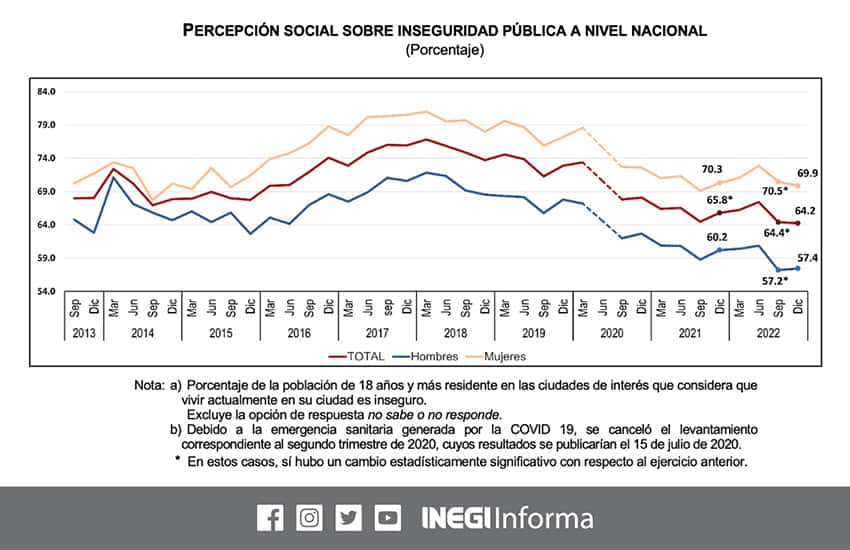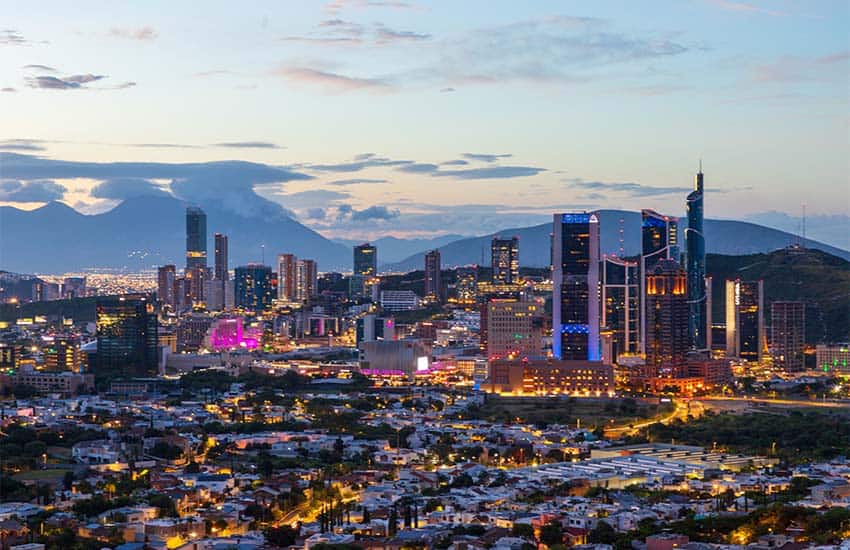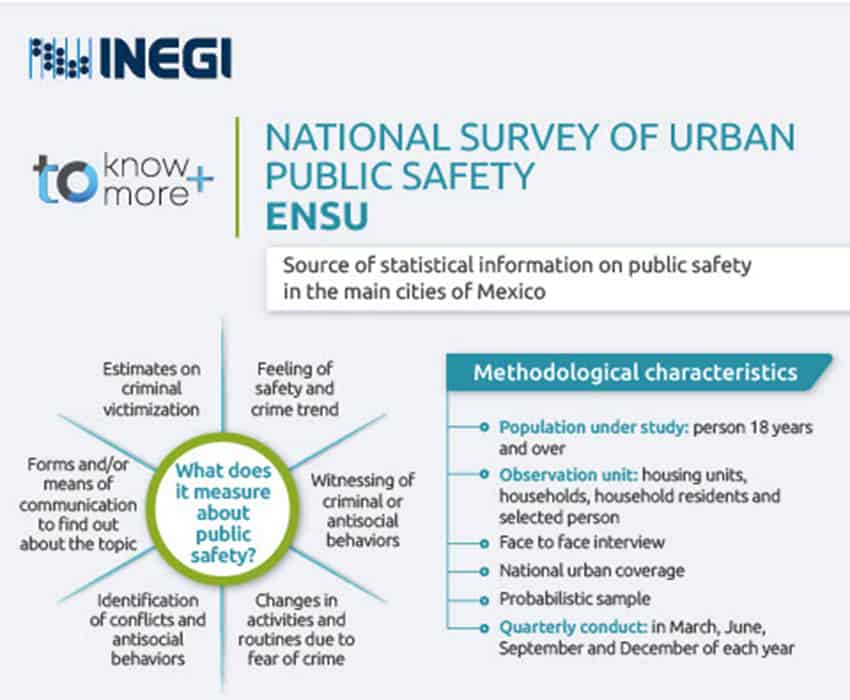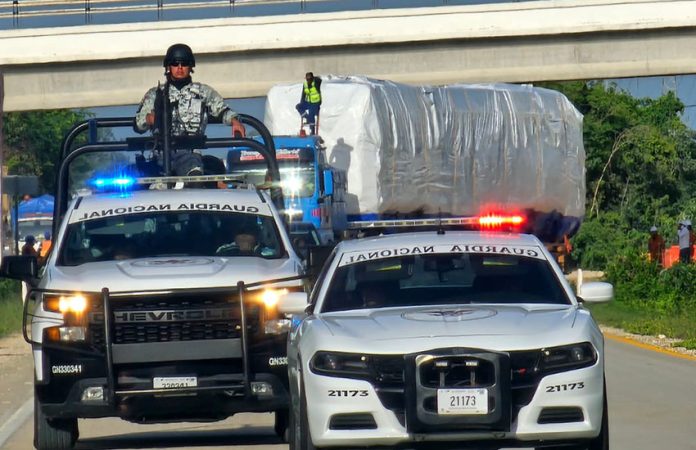The percentage of Mexicans who believe the city in which they live is unsafe increased slightly in the second quarter of 2023 compared to the previous three-month period, according to the results of a recent survey.
Conducted by the national statistics agency INEGI in June, the National Survey of Urban Public Security (ENSU) found that 62.3% of adults consider their city unsafe, up from 62.1% in March.

Occupants of almost 28,000 homes across 75 cities (including all 16 boroughs of Mexico City) responded to the quarterly survey.
The percentage of women who consider their city unsafe was 68.6%, while the figure for men was 54.8%.
Although there was a slight quarter-over-quarter increase in perceptions of insecurity among survey respondents, the 62.3% figure recorded in June represents a decrease of 5.1 percentage points from a year earlier.
The publication of the ENSU results comes a week after the federal government reported that homicide numbers decreased 1.68% annually in the first half of 2023 to 15,122.

Fresnillo and Zacatecas city, both in Zacatecas state, retained their unenviable status as Mexico’s most unsafe cities, as perceived by their residents.
Over nine in 10 residents of both cities — 92.8% in Fresnillo and 91.7% in Zacatecas city — expressed concerns for their own safety. Although those figures are very high, both declined slightly compared to March.
Ciudad Obregón, Sonora, ranked as the third most insecure city with 90.3% of residents considering it unsafe, followed by Ecatepec, México state (87.6%); Irapuato, Guanajuato (87.3%); and Naucalpan, México state (87.2%).
The cities with the fewest residents who felt unsafe in June were San Pedro Garza García, an affluent Nuevo León municipality in the metropolitan area of Monterrey (13.8%); Benito Juárez, a borough of Mexico City (19.8%); the Coahuila border city of Piedras Negras (20%); the Mexico City borough of Cuajimalpa (20.4%); Coahuila capital Saltillo (22.2%); and Tampico, Tamaulipas (23%).

Among the other cities included in the survey were Tijuana, which was considered unsafe by 71.8% of residents; Los Cabos (25.2%); Guanajuato city (66.4%); Acapulco (76.2%); Guadalajara (77.1%); Puerto Vallarta (30.7%); Morelia (64.8%); Monterrey (70.8%); Oaxaca city (66.3%); Cancún (83.3%); and Mérida (25.6%).
The most common places where respondents reported feeling unsafe were at ATMs on the street; on public transport; at the bank; on the streets they regularly use; on the highway; and at the market.
Over six in 10 respondents said they had seen people drinking in the street during the second quarter of 2023, 51.7% reported having witnessed a robbery or mugging, four in 10 told INEGI they had seen people buying or consuming drugs and 36.5% reported having heard frequent gunshots.
Just over one-third of respondents – 34.1% – said they expected the security situation in their city to remain “just as bad” during the next 12 months, while 23.6% predicted a deterioration. Just under a quarter of those polled – 23.5% – said they expected security to improve in their place of residence during the next 12 months, while 17.5% anticipated that the situation would remain “just as good” as it currently is.
With reports from EFE
